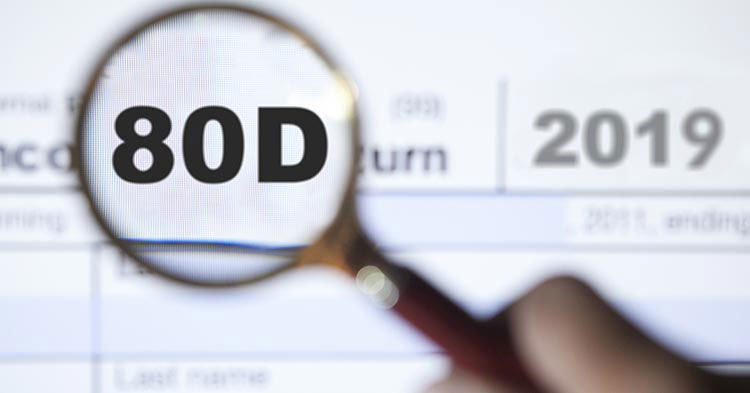OneInsure Blog
Section 80(D) – Income Tax Deduction for Health Insurance
While most urban taxpayers in India like to save tax through investments, retirement plans, or ULIPs, there are many among us who choose to protect themselves with a circumspect health plan that gives them the following advantages:
- Health plans cover large hospitalization costs in case of planned treatments, surgeries, and even emergencies (road accidents, for example) in return for relatively affordable premiums. If you visit a network hospital, the treatment can even be cashless. This protects you and your family from the financial burden of expensive treatments.
- Family floater plans allow you to cover the entire family under a single health plan for marginally higher premiums.
- High-quality treatments with no compromises.
- Tax benefits up to ₹ 20,280 under Section 80(D).
- Having a health plan ensures you are not fooled at hospitals with extra charges and unnecessary procedures.
As a mature householder, you must already be aware of why a health plan is a must-have in every urban salaried Indian’s financial planning. Having a health insurance policy not only helps cover your medical expenses, but it also gives you relief from tax liabilities. Section 80(D) of the Income Tax Act, 1961, allows taxpayers to claim deductions for health insurance premiums paid for insuring self, spouse, dependent children, and parents. The maximum investment declaration that can be made under this Section is ₹ 65,000. The following table specifies the details:
| Insured | Exemption List |
|---|---|
| Self and Family | ₹ 25,000 |
| Self and Family + Parents | (₹ 25,000 + ₹ 25,000) = ₹ 50,000 |
| Self and Family + Parents (senior citizens) | (₹ 25,000 + ₹ 30,000) = ₹ 55,000 |
| Self (senior citizen) and Family + Parents (senior citizens) | (₹ 30,000 + ₹ 30,000) = ₹ 60,000 |
The provisions under Section 80(D) are:
- You can claim an additional deduction of ₹ 5,000 for expenses related to health check-ups. This limit includes health check-up expenses of all the dependents in the family.
- Any mode of payment (debit cards, credit cards, electronic transfer, and other means) is acceptable for claiming deductions under Section 80(D), except premium amount remitted in cash. Payment for preventive health check-ups, however, can be made in cash.
- Deductions can only be claimed for premiums paid for dependent children. Premiums paid for children who earn is excluded in this Section.
How Do We Arrive at the Sum ₹ 20,280
To arrive at the tax-saving figure of ₹ 20,280, we have presumed the taxpayer is taxed under the 30% category (effectively, 31.2%). Since we know that the maximum investments declarable under Section 80(D) is ₹ 65,000, we use the following equation:
Tax saved = 31.2% * 65,000
Tax saved = 0.312 * 65,000
Tax saved = ₹ 20,280
Difference between Section 80(C) and 80(D)
Often times, people confuse Section 80(C) with Section 80(D). Under Section 80(C), deductions can be claimed up to ₹ 1,50,000, whereas under Section 80(D), deductions can be claimed up to ₹ 65,000. Tax benefits can be availed on life insurance premium payment, tax saving fixed deposits, PPF, ELSS, and others under Section 80(C) of the Income Tax Act. Section 80(D) governs the deductions on premiums for health insurance policies.
If you have any queries concerning the tax deductions under Section 80(D) of the Income Tax Act, drop us a message in the Comments section below or give us a ring at 86559-86559. We are happy to help!
GET BEST QUOTE FOR TAX


 Comments
Comments

 Health Insurance, Section 80(D), Tax Deductions
Health Insurance, Section 80(D), Tax Deductions

.jpg)

